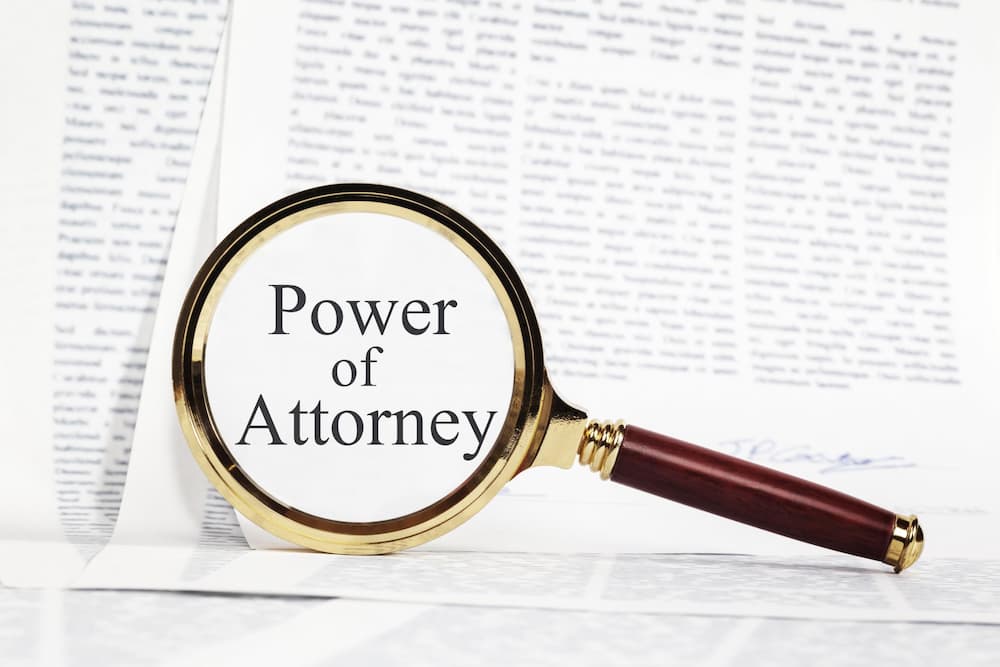What Is a Power of Attorney?
A power of attorney allows you to appoint an attorney-in-fact or agent, which can be an individual or an institution. Your agent acts in your place for financial or medical purposes if you ever become incapacitated or can't act on your own behalf.
Posted on November 13, 2023

The power of attorney (POA) document specifies what powers the agent has, which may include the power to open bank accounts, withdraw funds from bank accounts, trade stocks, modify trusts, and cash checks, among other things. In some cases, an agent may also have the power to consent to medical treatment you may need.
If you become incapacitated without a power of attorney in place, the court will have to appoint a guardian or conservator, which will come at a cost and can also be time-consuming for your family. It may also mean the court names someone as your agent whom you would not necessarily have named yourself.

FREE WEBINAR
5 Things to Know About
Estate Planning
When You Turn Sixty-Five
4 Main Types of Powers of Attorney
There are four main types of powers of attorney:
- Limited power of attorney — Gives a trusted third party the power to act on your behalf for a very specific purpose, such as allowing someone to sign checks for you
- General power of attorney — Gives your agent all the powers and rights you have yourself
- Durable power of attorney — Can be limited or general. It remains in effect if you happen to become incapacitated
- Springing power of attorney — Allows your attorney-in-fact to act on your behalf should you be incapacitated. It only goes into effect when you are unable to manage your affairs
How to Choose a Power of Attorney
The individual you appoint as your attorney-in-fact should be someone you trust implicitly, who is organized and conscientious, and who can be objective. Many people choose a family member as their agent. However, be aware that this can create potential complications.
You can hire a professional. There will be a fee associated with this, but a qualified professional fiduciary will have experience managing money and property. You can seek out recommendations for one through a qualified attorney.
Duties of an Agent Under a Power of Attorney
As an agent under a power of attorney, you represent the person executing the power of attorney. Your responsibilities include:
- maintaining accurate records of the actions you take under the power of attorney
- acting in the best interest of the principal, who is the person executing the power of attorney
- keeping your own money separate from the accounts you are managing as an agent
- providing reports of any transactions made as the agent in a timely manner to courts or government agencies as appropriate
The POA form will typically outline in detail all of the powers you have as the agent.
An individual may appoint more than one agent. When this is the case, the agents should inform one another of their actions to ensure consistency. If conflicts arise, the agents may need to involve a mediator. Or, they may require the court to resolve the issue, but this can be costly and time-consuming.
What Can Go Wrong With a POA?
A POA is among the most important documents you should have prepared as part of your estate planning process. However, there are some caveats of which to be aware:
- The agent you name could potentially abuse their powers, fail to act in your best interest or make decisions that you would not have wanted for yourself. Note that a power of attorney can, in fact, be revoked. Courts can also intervene if someone is misusing a power of attorney.
- You must be considered legally competent when executing a POA. Otherwise, your capacity at the time you signed the document could potentially be called into question.
- Some banks and financial institutions will not recognize the authority of the agent.
Who Should Hold Onto the POA Document?
Most POA documents state that any copy of the document should be considered an original. However, not all third parties honor this rule.
You may, therefore, choose to execute three original POAs. Your attorney can keep one original, you can hold onto another, and you can give one to your agent. Or, you can keep all original documents and inform your agent about where you have the documents stored, should they need to access them.
There are power of attorney forms available online, but you would be well advised to connect with an attorney.
A knowledgeable estate planning professional can guide you on how to execute a power of attorney properly and ensure that it complies with federal privacy law. Contact a qualified attorney near you.
More from our blog…
Seven Ways to Distribute Your Personal Property Fairly
Unlike money, personal belongings usually can't be divided equally after their owner passes away. For this reason, distributing possessions like furniture, jewelry, dishes, silverware, artwork, [...]
Capacity Requirements for Executing Estate Planning Documents
Proper execution of a legal instrument requires that the person signing have sufficient mental "capacity" to understand the implications of the document. While most people [...]
What You Should Know About Long-Term Care
Research shows that roughly one in seven adults aged 65 or older will need long-term care at some point in their later years. Meanwhile, tens of millions [...]
Understanding Medicaid: What Does Medicaid Cover?
In the complex and frequently changing landscape of health care in the United States, Medicaid stands out as a vital program. Since 1965, it has [...]
Recent blog posts

FREE WEBINAR
5 Things to Know About
Estate Planning
When You Turn Sixty-Five





